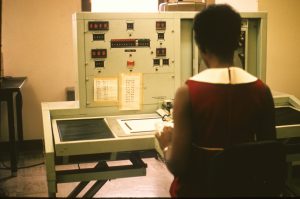The Power of Intentional Intellectual Exploration
The pursuit of knowledge and understanding is a fundamental human desire. From the earliest civilizations to modern society, humans have sought to expand their minds and explore new ideas. This quest for knowledge has led to incredible discoveries, advancements, and innovations. But what sets apart those who truly excel in their intellectual pursuits? The answer lies in intentional intellectual exploration – a practice that harnesses the power of focused and purposeful learning to unlock one’s full potential. In this article, we will delve into the transformative impact of intentional intellectual exploration and how it can help you reach new heights in your personal and professional development.
The Power of Intentional Learning
Intentional learning refers to the deliberate and conscious effort to acquire knowledge, skills, and understanding. This is in contrast to passive learning, which occurs incidentally through everyday experiences without any specific intention or effort. In intentional learning, one is actively engaged and motivated to acquire knowledge, which leads to a deeper understanding and retention of information.
The power of intentional learning lies in its ability to focus one’s efforts towards specific learning objectives. It allows individuals to take control of their own learning process and tailor it to their unique needs, interests, and goals. This self-directed and purposeful approach to learning enables individuals to become more efficient, effective, and successful learners.
Intentional Intellectual Exploration in Practice
Setting Clear Goals
One of the key components of intentional intellectual exploration is setting clear and specific goals. This involves identifying what you want to learn, why you want to learn it, and how you will go about learning it. By having a clear direction and purpose, you can focus your efforts towards achieving your learning objectives.
For example, if you want to improve your writing skills, your goal may be to write at least one article every week for a year. This not only gives you a specific target to work towards but also provides a sense of accountability and motivation to keep going.
Diversifying Learning Methods
Intentional intellectual exploration also involves diversifying learning methods to cater to different learning styles and enhance understanding. This could include reading books, attending seminars and workshops, watching tutorials, or engaging in hands-on activities. By experimenting with different learning methods, you can discover what works best for you and adapt your learning process accordingly.
For example, if you are a visual learner, creating mind maps or diagrams may help you better understand complex concepts. On the other hand, if you are an auditory learner, listening to podcasts or lectures may be more effective for you.
Embracing Failure as a Learning Opportunity
In the pursuit of intentional learning, failure is inevitable. However, the difference lies in how one responds to failure. Those who practice intentional intellectual exploration see failure as an opportunity to learn and grow. They analyze their mistakes, identify areas for improvement, and use that knowledge to make future progress.
By embracing failure and understanding that it is a natural part of the learning journey, individuals can overcome setbacks and continue to progress towards their goals.
Benefits of Intentional Intellectual Exploration
Continuous Growth and Development
Intentional intellectual exploration is a continuous and lifelong process. By consistently seeking out new knowledge, skills, and experiences, individuals can continue to grow and develop throughout their lives. This not only expands one’s understanding but also opens up new opportunities for personal and professional growth.
Increased Creativity and Innovation
Intentional learning encourages individuals to think outside the box and explore new ideas and perspectives. This sparks creativity and innovation, leading to the development of groundbreaking ideas and solutions.
Personal Fulfillment
Intentional intellectual exploration can also bring a sense of personal fulfillment and satisfaction. By pursuing knowledge and skills that align with your passions and interests, you can experience a deep sense of fulfillment and purpose in life.
Conclusion
The power of intentional intellectual exploration lies in its ability to unlock one’s full potential, foster continuous growth, and lead to personal fulfillment. By setting clear goals, diversifying learning methods, and embracing failure, individuals can harness the transformative impact of this practice to reach new heights in their personal and professional development.











